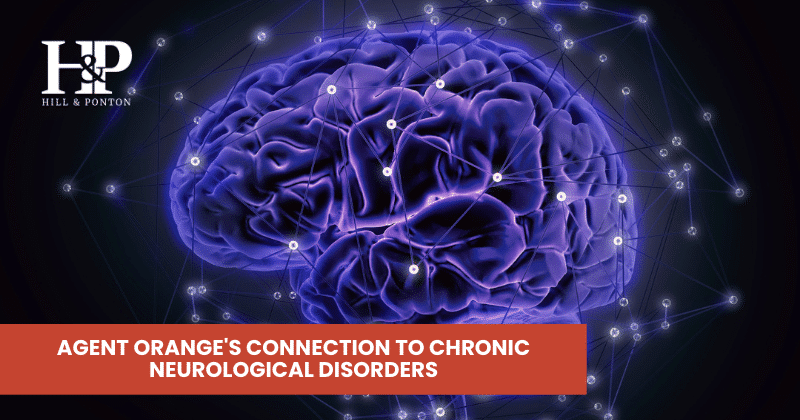Agent Orange is a herbicide that was widely used by the US military during the Vietnam War from 1961 to 1971. It was primarily used to clear vegetation and deprive the enemy of cover and food.
Agent Orange was a mixture of two herbicides, 2,4,5-T and 2,4-D, which contained a highly toxic and persistent chemical contaminant called dioxin. Dioxin is a group of chemicals that are highly toxic and can cause a range of adverse health effects, including cancer, reproductive and developmental problems, and immune system damage.
Dioxin was a contaminant in Agent Orange because of the way it was manufactured. The manufacturing process for 2,4,5-T involved a step that created dioxin as a byproduct, and although the levels of dioxin in Agent Orange were initially believed to be low, subsequent testing revealed that they were much higher than originally thought.
Agent Orange was used extensively throughout Vietnam, and it contaminated the soil, water, and food supply. Vietnamese people who were exposed to Agent Orange have experienced a range of health problems, including birth defects, cancers, and other chronic diseases.
In addition, US military personnel who were exposed to Agent Orange during the Vietnam War have experienced a range of health problems, including cancer, diabetes, heart disease, and neurological disorders.
The US Department of Veterans Affairs has recognized several health conditions as being associated with exposure to Agent Orange, and veterans who were exposed to Agent Orange may be eligible for benefits and healthcare.
Can Agent Orange cause nerve damage?
Yes, exposure to Agent Orange, a herbicide used during the Vietnam War, has been associated with nerve damage. Dioxin is a highly toxic chemical that is a byproduct of certain industrial processes, including the production of certain herbicides and pesticides, as well as waste incineration.
Dioxin is a persistent organic pollutant that can remain in the environment for many years and accumulate in the food chain. It has been linked to a range of health problems, including nerve damage, as it interferes with the normal functioning of the nervous system.
Dioxin has been shown to cause damage to the myelin sheath, which is the protective covering that surrounds nerve fibers and allows them to transmit signals efficiently. When the myelin sheath is damaged, the nerve signals can be disrupted, leading to symptoms such as numbness, tingling, and weakness in the affected areas.
Dioxin exposure can also damage the nerves by causing inflammation and oxidative stress. These processes can damage the nerve cells and impair their ability to function properly.
Additionally, dioxin exposure can cause changes in the structure and function of the brain, which can lead to cognitive impairment and other neurological problems.
In the case of Agent Orange exposure, the dioxin contained in the herbicide has been linked to the development of peripheral neuropathy, a type of nerve damage that affects the nerves outside of the brain and spinal cord. Symptoms of peripheral neuropathy can include numbness, tingling, and weakness in the hands and feet.
Agent Orange exposure has also been associated with other neurological conditions, such as Parkinson’s disease and amyotrophic lateral sclerosis (ALS).
Agent Orange and Peripheral Neuropathy
Peripheral neuropathy is a type of nerve damage that affects the peripheral nervous system, which includes the nerves outside of the brain and spinal cord.
The symptoms of peripheral neuropathy can vary depending on the nerves that are affected, but common symptoms include numbness, tingling, and burning sensations in the hands and feet. In some cases, muscle weakness and difficulty with coordination can also occur.
The severity of the symptoms can range from mild to severe, and they can affect a person’s ability to perform everyday tasks.
Dioxin can damage the myelin sheath that surrounds the nerves, leading to impaired nerve function. Dioxin exposure can also cause inflammation and oxidative stress, which can damage the nerve cells and impair their ability to function properly.
Treatment options for peripheral neuropathy include medications to manage pain and other symptoms, physical therapy, and lifestyle changes.
Agent Orange and Parkinson’s Disease
Parkinson’s disease is a neurodegenerative disorder that affects the nervous system and can cause symptoms such as tremors, stiffness, and difficulty with movement.
The exact mechanism by which Agent Orange causes Parkinson’s disease is not fully understood, but it is thought to be related to the toxicity of dioxin.
Dioxin can damage the cells in the brain that produce dopamine, a neurotransmitter that is involved in controlling movement. Dopamine-producing cells in the brain gradually degenerate in people with Parkinson’s disease, leading to the characteristic motor symptoms.
Dioxin exposure has also been shown to cause oxidative stress and inflammation, which can damage cells throughout the body, including the brain cells that are affected in Parkinson’s disease.
Agent Orange and Amyotrophic Lateral Sclerosis (ALS)
Amyotrophic lateral sclerosis (ALS) is a progressive neurodegenerative disease that affects the nerve cells in the brain and spinal cord. ALS is characterized by the gradual loss of muscle control and movement, eventually leading to paralysis and respiratory failure.
Dioxin exposure can also damage the neurons in the brain and spinal cord that control muscle movement, leading to the characteristic symptoms of ALS.
The damage to these neurons can also lead to the accumulation of abnormal proteins, which can further damage the neurons and accelerate the progression of the disease.
Studies have shown that veterans who were exposed to Agent Orange during the Vietnam War have a higher risk of developing ALS compared to veterans who were not exposed.
How to get VA Disability Compensation for Neurological Disorders from Agent Orange Exposure
If you are a veteran who was exposed to Agent Orange during your service in the Vietnam War and you are experiencing nerve damage as a result of that exposure, you may be eligible for disability compensation from the Department of Veterans Affairs (VA). Here are the general steps to take to apply for VA disability compensation for nerve damage due to Agent Orange exposure:
- Gather medical evidence: Before you apply for disability compensation, you will need to have medical evidence of your nerve damage. This may include medical records, test results, and a diagnosis from a healthcare provider. It is important to have as much documentation as possible to support your claim.
- File a claim with the VA: You can file a claim for disability compensation online through the VA’s eBenefits website, by mail, or in person at a VA regional office. Make sure to include all of your medical evidence and any other relevant information.
- Attend a VA medical examination: The VA may schedule a medical examination to evaluate your nerve damage and determine the extent of your disability. It is important to attend this examination and provide any additional information or documentation that may be requested.
- Wait for a decision: The VA will review your claim and all of the supporting evidence to determine if you are eligible for disability compensation. This process can take several months, so it is important to be patient.
- Appeal a decision if necessary: If your claim is denied, you have the right to appeal the decision. You can do this by filing a Notice of Disagreement with the VA and providing additional evidence to support your claim.
It is important to note that eligibility for disability compensation depends on a number of factors, including the severity of your nerve damage and the amount of Agent Orange exposure you experienced. You may also be eligible for other types of VA benefits, such as healthcare or vocational rehabilitation, so it is important to explore all of your options.
Where Were Veterans Exposed to Agent Orange?
During the Vietnam War, veterans were exposed to Agent Orange primarily in Vietnam and other areas in Southeast Asia where the herbicide was used.
Agent Orange was used extensively from 1962 to 1971, and it is estimated that over 20 million gallons of the herbicide were sprayed over Vietnam during that time. The herbicide was also used in smaller amounts in other parts of Southeast Asia, including Laos and Cambodia.
In addition to military personnel, civilians in Vietnam and other parts of Southeast Asia were also exposed to Agent Orange.
This exposure has been linked to a range of health problems, including cancer, nerve damage, and birth defects.
The U.S. government has provided compensation and healthcare benefits to veterans and civilians who were affected by Agent Orange exposure.
VA Disability Compensation for Peripheral Neuropathy
VA disability compensation for peripheral neuropathy is a financial benefit provided by the Department of Veterans Affairs (VA) to veterans who suffer from this condition as a result of their military service. Peripheral neuropathy is a type of nerve damage that can cause weakness, numbness, and pain in the hands and feet.
To be eligible for VA disability compensation for peripheral neuropathy, veterans must meet certain requirements, including:
- A current diagnosis of peripheral neuropathy
- Evidence that the peripheral neuropathy is related to military service
- A specific rating from the VA based on the severity of the peripheral neuropathy
The VA disability rating system ranges from 0% to 100%, with higher ratings indicating more severe disabilities. The amount of disability compensation that a veteran receives is based on their disability rating, with higher ratings resulting in higher monthly payments.
The VA considers a number of factors when determining a veteran’s disability rating for peripheral neuropathy, including the severity of the symptoms, the frequency and duration of flare-ups, and the impact of the condition on daily activities.
The criteria are as follows:
- 80 percent disability rating: “Complete; the foot dangles and drops, no active movement possible of muscles below the knee, flexion of knee weakened or (very rarely) lost”
- 60 percent disability rating: “Incomplete: Severe, with marked muscular atrophy”
- 40 percent disability rating: “Moderately severe”
- 20 percent disability rating: “Moderate”
- 10 percent disability rating: “Mild”
VA Disability Compensation for Parkinson’s Disease
VA disability compensation for Parkinson’s disease is a financial benefit provided by the Department of Veterans Affairs (VA) to veterans who suffer from this condition as a result of their military service. Parkinson’s disease is a neurodegenerative disorder that can cause tremors, stiffness, and difficulty with movement.
To be eligible for VA disability compensation for Parkinson’s disease, veterans must meet certain requirements, including:
- A current diagnosis of Parkinson’s disease
- Evidence that the Parkinson’s disease is related to military service
- A specific rating from the VA based on the severity of the Parkinson’s disease
The VA disability rating system ranges from 0% to 100%, with higher ratings indicating more severe disabilities. The amount of disability compensation that a veteran receives is based on their disability rating, with higher ratings resulting in higher monthly payments.
The VA considers a number of factors when determining a veteran’s disability rating for Parkinson’s disease, including the severity of the symptoms, the frequency and duration of flare-ups, and the impact of the condition on daily activities.
VA Disability Compensation for ALS
VA disability compensation for Amyotrophic Lateral Sclerosis (ALS) is a financial benefit provided by the Department of Veterans Affairs (VA) to veterans who suffer from this condition as a result of their military service. ALS is a progressive neurodegenerative disease that affects nerve cells in the brain and spinal cord, resulting in muscle weakness and paralysis.
To be eligible for VA disability compensation for ALS, veterans must meet certain requirements, including:
- A current diagnosis of ALS
- Evidence that the ALS is related to military service
- A specific rating from the VA based on the severity of the ALS
The VA disability rating system ranges from 0% to 100%, with higher ratings indicating more severe disabilities. The amount of disability compensation that a veteran receives is based on their disability rating, with higher ratings resulting in higher monthly payments.
The VA considers a number of factors when determining a veteran’s disability rating for ALS, including the severity of the symptoms, the rate of disease progression, and the impact of the condition on daily activities.
In addition to disability compensation, veterans with ALS may be eligible for other benefits through the VA, such as VA health care, adaptive equipment, and home modifications. The VA also provides support for caregivers of veterans with ALS.
Have Questions About Appealing Your Claim or Understanding How the Claims Process Works?
The attorneys at Hill & Ponton are here to support you with appealing a claim to get benefits for neurological disorders due to Agent Orange exposure. If you are intending to appeal a denied claim, you can contact us for an evaluation and we can help you with this process.
However, if you are considering filing an initial claim, or even if you are interested in learning about the appeals process, we offer a free ebook to get you started on the right foot! The Road to VA Compensation Benefits will help break down the claims process from start to finish. Click the link below to learn more.





